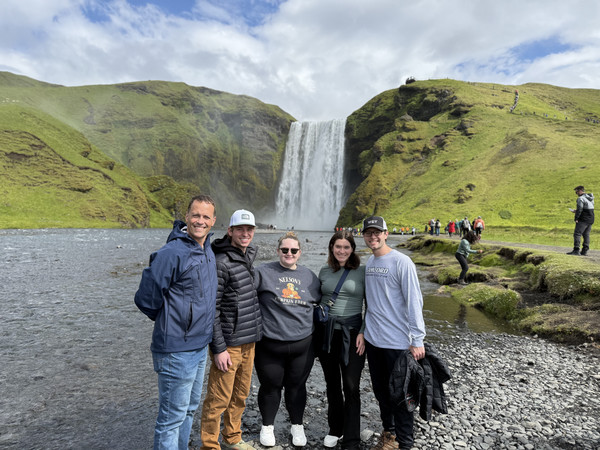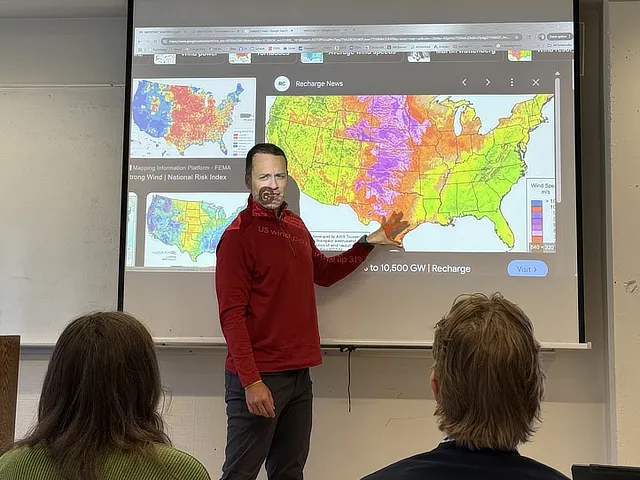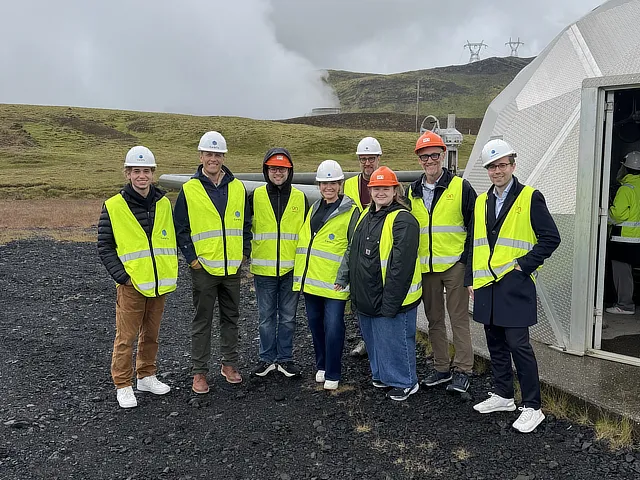
Samford University Cumberland School of Law has launched the Land Use & Natural Resources Law Center, giving students new opportunities to explore careers at the intersection of law, environmental policy, and economic development.
Alabama’s natural resources—forests, rivers, biodiversity and mineral deposits—support multibillion-dollar industries and a growing population. The new center will prepare students to navigate the legal and policy challenges that come with balancing conservation, land development, environmental protection and economic growth.
The center, launched with initial support from Samford University’s Innovation Fund as well as support from individual donors, offers a range of hands-on opportunities for students, including discipline-specific externships and the new study abroad summer program in Iceland exploring topics like sustainability and geothermal energy. Complementary to the center, Cumberland School of Law students also have access to courses such as Natural Resources Law, Land Use Law, Scientific Evidence, Construction Law, International Environmental Law, and more, which are all part of the school’s course guide for students pursuing a career in environmental law.
 The center is led by Cumberland Dean Blake Hudson, who brings extensive scholarship and experience in environmental and land use law. William Holt, land use planning expert, serves as the associate director. Additional Cumberland faculty and an advisory board of experts from across environmental, business, industrial and real estate sectors also support center programming.
The center is led by Cumberland Dean Blake Hudson, who brings extensive scholarship and experience in environmental and land use law. William Holt, land use planning expert, serves as the associate director. Additional Cumberland faculty and an advisory board of experts from across environmental, business, industrial and real estate sectors also support center programming.
“This center is designed with students in mind,” Dean Hudson said. “Whether they want to work in environmental law, real estate development, public service or nonprofit advocacy, the center offers the tools and training to get them there.”
Participation in the center is open to all Cumberland School of Law students interested in environmental or natural resources issues, as well as students enrolled in Samford University’s Master of Science in Environmental Management.
 In addition to course work and experiential learning, the center will host symposia and speaker events on issues such as zoning, climate resilience, housing affordability and state-level environmental regulation. Earlier this year, a symposium brought together experts from across the nation to discuss regulatory alternatives to direct federal environmental regulation.
In addition to course work and experiential learning, the center will host symposia and speaker events on issues such as zoning, climate resilience, housing affordability and state-level environmental regulation. Earlier this year, a symposium brought together experts from across the nation to discuss regulatory alternatives to direct federal environmental regulation.
To honor the official launch of the center, Cumberland School of Law will host its next Environmental Law Symposium on Oct. 3, 2025, titled “Resilient Futures: The Next Era in Land Use Law” featuring keynote speaker Basil Camu. Camu is the cofounder of Leaf & Limb, a tree care company in Raleigh, North Carolina; cofounder of Project Pando, a nonprofit organization that aims to connect people to trees; and author of From Wasteland to Wonder: Easy Ways We Can Help Heal Earth in the Sub/Urban Landscape. Further event details and registration are forthcoming.
